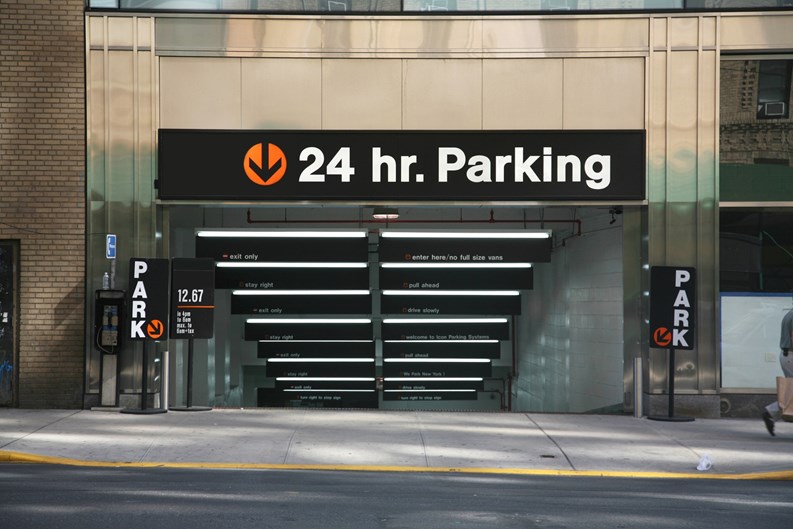In any large city, parking is a big deal—it’s often hard to find, and when you do find a spot, it can be very expensive. Parking spaces not only provide urban drivers with freedom and mobility in the crowded cityscape, but they can be a serious revenue generator – so it’s not surprising many co-op and condo buildings have their own parking facilities. Parking garages can be an amenity for residents and a revenue source for the building.
Whether the facility is underneath the building or adjacent to it, there’s more to running a parking garage than simply painting some stripes on the pavement and counting the cash as it rolls in. Management of the facility, allocation of parking spaces, structural maintenance and upkeep all must be weighed when considering operation of a parking facility.
Understanding the administrative/managerial side of it all, and knowing how buildings handle parking facilities, is important for all residents. Since a parking facility owned by an urban residential building is like any outdoor surface-level parking lot for a condo building in the suburbs in that it’s part of the commonly owned property of the building, that means it’s everyone’s concern. As such, board members and all the other residents have a stake in seeing the parking area used to its highest potential.
Handling Lots
While it’s not known what percentage of residential buildings in New York City have their own parking facilities, many were built with their own garages. These buildings that do have garages may manage the parking facility in-house through their own management team, or they might outsource it to a company that specializes in the work.
Generally, parking administration doesn’t differ a lot between co-ops and condos. Often, it’s outsourced to a company specializing in management of garages; revenues (minus costs) go to the association or cooperative corporation, says Ellis Dumont, founder and CEO of Advanced Parking Concepts. Sometimes, proceeds from the parking facility go back to the building; it’s really a matter of what the building’s management wants. “In most cases [the parking facility] is rented through an operator or management company who collects the money directly and distributes it on a monthly or yearly basis,” says David Avital, president/CEO of MTP Parking in Manhattan.
How the specifics of parking administration are arranged is really a matter of board preference. Some buildings might find it most valuable to offer parking spaces to residents as part of their deed or proprietary lease, while others might go with a discounted rate for residents, and others still make no concessions to unit owners or shareholders at all, and charge everyone the same rate.
“There are various ways to collect revenue from a parking facility,” says Michael Bryantsev, assistant vice-president of field operations for Reliant Realty Services Inc., in New York City. “A building’s management can turn it over to a third party, let them worry about profitability, and collect monthly rent from that third party. Another may choose to rent out the lots themselves to the tenants and include it in their rent or monthly maintenance fees.”
Of the different ways to set up garage management, the most popular is a fixed management fee for professional handling of the facility, which is often supplemented by an incentive fee indexed to net operating income, says Hector Chevalier, executive vice-president for SP Plus Corporation, a nationwide provider of parking and related services that is headquartered in Chicago. “This gives the operator an incentive to maximize revenue and minimize expenses to the benefit of ownership,” Chevalier says.
According to Chevalier, very few residential buildings in New York self-manage their parking facilities. Virtually all co-op/condo buildings hire professional operators either as a leasehold tenant or a manager.
“In the first case, revenues are collected by the operator and retained, with the rental payment not being directly related to revenue,” he says. “In the latter case, revenues and expenses are fully disclosed and net income after expenses and management fees are remitted to the owner. The only difference between a co-op and condo is that monthly parking paid by shareholders in the former is exempt from New York City parking tax.”
If the facility is not a transient garage, when a residential building-owned parking garage is managed by a vendor, the setup is pretty much the same be it a co-op or condo building. The terms of the agreement could be a longer term than one might imagine. “In some condos I’ve managed in the past, they’ve basically [structured the parking garage vendor agreement] as a long lease of 20 years,” says Eileen Alexander, property manager for Forest Hills South Owners, in Forest Hills, New York.
A parking facility can bring a lot of coin into a building annually. Revenue can range from thousands to millions, depending upon the facility’s size and location. With the possibility of such long-term leases in play, and the chance of mismanagement of that much money, choosing the right parking garage management company is crucial, and shouldn’t be done hastily.
Choosing Management
There are several criteria a board/management team should consider before making the final choice to hire a parking management firm. Just as with any other vendor of a residential building, boards of directors must do their homework. And just as with any vendor who handles security-related aspects like guards, concierges and parking garage attendants, such firms must be thoroughly vetted before being hired. Check past work histories. Check references of past and current clients. “Experience, credibility, reliability, and flexibility to accommodate specific needs, are important,” Avital says.
And all the experts advise going with experience. “They should be an established company; one with a track record of many years,” says Dumont, “and you should also be looking [for a company] that has the best technology, that can integrate with existing systems as needed.”
The reputation of a parking company is critical, since an association or co-op corporation is entrusting the handling of large sums of money to an outside entity, and may not have the resources to effectively audit much beyond expenses, Chevalier says.
So trust and verification are key. “Does the parking management company have rigorous audit procedures? Do they have experienced supervisors? Do they have the back-office resources in marketing, training, human resources, revenue control, claims adjustment, accounting, risk management and legal affairs to properly support the parking facility?” Chevalier continues. “Oftentimes, the difference in management fees becomes the deciding factor, but this difference is typically insignificant in comparison to the quantitative differences in net income and qualitative differences in service to customers, or appearance of the facility.”
One other concern, adds Chevalier, is that it’s relatively easy for an operator to forecast higher-than-realistic revenues to boost apparent net income, and suggest they will be able to deliver it.
That’s why knowledge is key. Various laws deal with parking facilities owned by residential entities, and boards and managers should know something about this area. For instance, taxes must be applied specifically for parking. The parking business used to be an all-cash business – but now it’s largely digital and automated, and the electronic nature of the transaction brings its own concerns.
Safety of the facility—from elevators to stairs to the parking deck—is another crucial component to successful management.“Apart from the underlying safety issues, [a board]’s concern should also relate to compliance with applicable laws — or the cost of penalties if they’re found not compliant,” Chevalier continues. “In New York City, for example, restrictions on licensed capacity and accommodations for bicycles are a primary focus for regulators.”
A Question of Allocation
Some residential buildings allocate parking spaces for their residents. But how do they do it, when such spots are so dear in the city? Take a number and get in line, buddy.
“In most cases, [spaces are awarded] by a waiting list, and in many cases by the availability of parking,” says Avital. “In certain areas, this can affect the price of the real estate.”
“In New York City,” says Chevalier, “residential parking facilities are licensed for a certain number of spaces that are typically deemed ‘accessory’ to the building, where residents have priority over all other users.”
As far as how those spaces are monetized by the building or development, “In virtually all cases where a facility operates under a management contract, ownership approves monthly parking rates recommended by the operator to maximize utilization of the facility and generate the highest possible net income,” says Chevalier. “In a leasehold situation, ownership must incorporate terms in the lease document that protect its ability to guarantee space for residents. The more restrictive these terms are, the less a tenant may be willing to pay in rent, since the tenant lacks full control in responding to market forces.”
With such a valuable asset as a parking garage attached to one’s building in a dense, parking-deficient urban area like New York City or Chicago, you might think these facilities would never be made available for sale – and yet sometimes they are indeed put on the block.
Why would a co-op or condo opt to sell off such a valuable asset? When buildings do sell interests in their parking facility, it may be because they need cash, they don’t want to deal with business issues related to the garage any longer, or to simplify on-site management. “Often buildings sell their [parking] units to raise revenue, reduce debt, limitation of income allowed/ permitted, etc. In some cases, they will sell them to condo retail buyers or parking operators,” Avital says.
Part of the reason for such a sale can be simply eliminating hassle. “Certain repairs [to a parking facility] can become a source of conflict, since most building services come through residential parking garages, and the building needs access to address any building-related maintenance concerns,” Chevalier says.
Ultimately, having a garage adjacent to or associated with your building is very beneficial, both as a value-adding amenity for residents and as a revenue generator for the community as a whole. A safe, well-run, financially-optimized parking facility is worth its weight in gold – and making smart choices about how to manage it can ensure that it holds its value for many years to come.
Jonathan Barnes, a business journalist, is a longtime freelancer for The Chicagoland Cooperator who writes for the media and corporations.







Leave a Comment